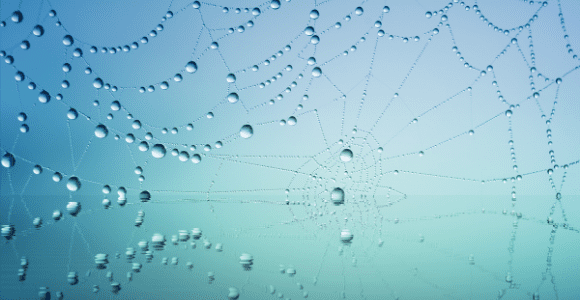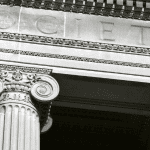Welcome readers! Please subscribe through the button on the right.
(Read this series from the beginning at Part 1 and Part 2.)

The Johannine community defines itself as “more than” and those who do not define Jesus the way they do as “less than.” This is an intrinsically harmful exceptionalism or supremacy. It is othering that has repeatedly proven harmful to our existence as humans. It’s not life giving to define ourselves in exclusive categories of “us” and “them.” Certainly there are differences among us, yet those differences are not to divide anyone, and to the degree that we define our difference in terms of “us” and “them,” we create harm. Moving away from “us” and “them” and viewing one another with more subtlety, however, will always be life-giving.
We are connected, whether we realize it or not. Othering and dividing doesn’t breathe life; it breathes harm and death.
Many now see this truth. I think of the following statements that have been meaningful to me recently:
We belong to a mutually beneficial web of connection, well-being, and love. At the root of this connection is empathy; the result is kindness, compassion, respect, and understanding. When religion doesn’t center on this mutuality, it can become one of the toxic narratives that, in the end, dismantles self-love. (Rev. Dr. Jacqui Lewis ; Fierce Love, p. 30)
“God’s dream is that you and I and all of us will realize that we are family, that we are made for togetherness, for goodness, and for compassion.” (Archbishop Desmond Tutu; quoted by Rev. Dr. Jacqui Lewis in Fierce Love, p. 129)
All men [sic, —and women, and nonbinary people] are caught in an inescapable network of mutuality, tied in a single garment of destiny. Whatever affects one directly affects all indirectly. I can never be what I ought to be until you are what you ought to be, and you can never be what you ought to be until I am what I ought to be. (Dr. Martin Luther King, Jr., The Man Who Was a Fool)
Human beings are made for each other and no people can realize their full humanity except as they participate in its realization for others. (Dr. James H. Cone, God of the Oppressed.)
We are part of one another. Yes, some of us see life through one lens, some of us see life through others. But we are still connected. We thrive together. We survive together. What harms some, always in some way harms everyone, even those perpetrating or benefiting from that harm. You can benefit from the harm you do to others in one area of your life while being harmed in other areas.
Last month’s recommended reading from Renewed Heart Ministries was Rev. Dr. Jacqui Lewis’ book Fierce Love. There are so many life-giving statements in her book, and my favorite that has been continually popping up in my heart and mind is this one:
Our multifaith community (which includes agnostics and atheists) takes seriously the prayer said every Sunday: “God’s will be done on earth as it is in heaven.” For us, faith means partnering with God, whom we call by many names—including Love—to make heaven on earth. That means healing the world of brokenness; that means working hard to dismantle systems of oppression. That means accepting this: If there is such a thing as salvation, then none of us are saved until all of us are saved. Saved from poverty, saved from racism and xenophobia. Saved from gender inequality and discrimination based on whom we love.” (Lewis, Jacqui. Fierce Love, p. 185)
Christians should never have othered the Jewish people, and this week’s reading reminds us of that painful history. Repenting of this history also calls Christians to account for ways we have repeatedly practiced harmful othering with different communities also.
Today, we have the opportunity to do better. It will take some effort to undo old habits, for sure. And it’s worth it.














